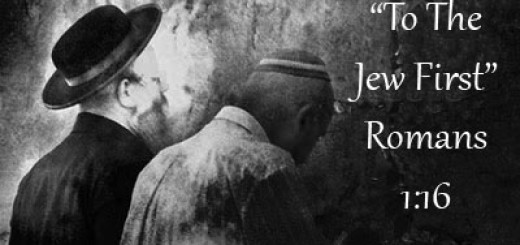WHAT WILL BE NEXT?
 The corrupting outcome of immorality is evident; and it occurs, not only in people who do not know God, but also in those who are called to fight against immorality. The immorality of people, who were called to serve, corrupts people in a particular way which then leads to the wrath of God.
The corrupting outcome of immorality is evident; and it occurs, not only in people who do not know God, but also in those who are called to fight against immorality. The immorality of people, who were called to serve, corrupts people in a particular way which then leads to the wrath of God.
The sons of Eli, Hophni and Phinehas – grew up in the temple; they were the sons of the priest; they were in charge of the Ark of the Covenant but still, in the midst of all of this, they were wicked. They received the priestly garments from their father, but in return they brought shame and a curse to his life and the lives of his descendants, and he died in shame. The immorality of the sons reflected not only on their father, who was a judge of Israel for 40 years, but on the entire clan of Eli – the men in his clan were dying, barely reaching the middle ages. Their wickedness led to the death of more than 30,000 people. Such a severe penalty came, because, those, who were supposed to sanctify people, were corrupting them. The Scriptures mention Hophni and Phinehas’ sins as very grand; they averted people away from offering sacrifices: “… So the sin of these young men was very serious in the Lord’s sight, for they treated the Lord’s offerings with contempt.” 1 Samuel 2:17.
The New Testament Scripture speaks of us as a nation of priest, “But you are not like that, for you are a chosen people. You are royal priests, a holy nation, God’s very own possession. As a result, you can show others the goodness of God, for he called you out of the darkness into his wonderful light.” 1 Peter 2:9.
We are called to proclaim the perfection of the Lord, not merely by words, but far more; by our actions, our lives.
God does not change his standards, and there is no difference between the demands of the priesthood of the New and the Old Testaments. God strictly asked of, not only the wicked ones, but also of their father. God charged Eli’s guilt under two clauses, “So why do you scorn my sacrifices and offerings? Why do you give your sons more honor than you give me—for you and they have become fat from the best offerings of my people Israel! “1 Samuel 2:29.
So, the Lord brought accusation against the Eli under two clauses:
• Why have you allowed violations against My offerings?
• Why do you prefer your sons over Me?
Many people today speak of the priority of family interests before the interests of the community of the Lord. But in the story of Eli, the Almighty clearly demonstrated his position of the priorities in the life of the priesthood.
Everyone saw the immorality of the priests; how they took what did not belonged to them; how they were fornicating with the women who come to the Temple. But not all the people followed their wickedness, as we see an example of Hannah, who, had no children, tearfully prayed and cried out to the Creator. She prayed so hard that when Eli saw her, he thought she was drunk and said: how much can you drink? Go, sleep it off. If Eli thought this, then it means that drunken women appeared in the Temple quite often. It is not difficult to imagine what many people, nowadays, would answer to those words of the priest. But God always has a holy remnant, even where there is a transgression of the priesthood, larceny, drunkenness and fornication. Hannah remained in humility and submission before Eli, “Must you come here drunk?” he demanded. “Throw away your wine!” “Oh no, sir!” she replied. “I haven’t been drinking wine or anything stronger. But I am very discouraged, and I was pouring out my heart to the Lord. Don’t think I am a wicked woman! For I have been praying out of great anguish and sorrow.”1 Samuel 1:14-16
Perhaps someone might ask: what is the point of this humility, the priest was wrong? Yes, the priest was wrong, but Hannah was right. And God rewarded her for her humility; she received an immediate answer to her prayer. She conceived and gave a birth to a son – the great prophet of Israel – Samuel.
She received an answer to her prayer after the blessing of the priest, who was not right in front of her and insulted her with his words. If we wish, we can come to a very important conclusion for our lives and service. Even when a priest is not right, his prayers and his blessing work for the glory of God. What would have happen in Hannah’s life if she had not humbled herself in front of the priest? She would have remained childless. Hannah’s faith and humility before the priest, is worthy of being respected and imitated.
She fulfilled her promise, in spite of everything; she knew about the immorality that took place among the priesthood. Nevertheless, she brought her son and devoted him to the service of God, leaving him at the Temple: “When the child was weaned, Hannah took him to the Tabernacle in Shiloh. They brought along a three-year-old bull for the sacrifice and a basket of flour and some wine. After sacrificing the bull, they brought the boy to Eli. “Sir, do you remember me?” Hannah asked. “I am the woman who stood here several years ago praying to the Lord. I asked the Lord to give me this boy, and he has granted my request. Now I am giving him to the Lord, and he will belong to the Lord his whole life.” And they worshiped the Lord there.” 1 Samuel 1:24-28
God saw the wickedness of the priesthood and He sought to find someone who would be a faithful priest, and He found Hannah and gave her a son. The desire of God was not aimed at the destruction of Israel but the restoration of the priesthood.
The Lord is always looking for ways to restore his people in truth, in holiness. But first and foremost, the restoration of the priesthood.
…I will raise up for myself a faithful priest…
God prophesied to Eli about the death of his sons for their immorality, and that He will lift up a faithful priest, “and what happens to your two sons, Hophni and Phinehas, will be a sign to you—they will both die on the same day. I will raise up for myself a faithful priest, who will do according to what is in my heart and mind. I will firmly establish his priestly house, and they will minister before my anointed one always.”1 Samuel 2:34, 35
Here, God was speaking about Samuel, as the faithful priest, and He prophesied about imminent appearance of the anointed one – the King of Israel [Saul]. God was speaking with Eli about His relationship with Israel: “…and you will see distress in my dwelling. Although good will be done to Israel…” 1 Samuel 2:32
Many times in its history, Israel saw affliction on the dwellings of God, yet, again and again God blessed Israel. God demonstrates, over and over again, His unchangeable plan to save the world through Israel, and in doing so, He praised the faithful, but those who despised Him carry out their punishment: “…Those who honor me I will honor, but those who despise me will be disdained… ” 1 Samuel 2:30
God glorified Samuel, and all of Israel knew that he I was the true prophet. (1 Samuel, Chapter 3)
It is not possible to defeat the God of Israel. People think that in defeating Israel, thus they also defeated their God. They do not realize that they are only an instrument in the hands of God, put there, to help change the people of Israel, to return them to the holy life. The Philistines, inflicting a severe defeat on Israel, decided to capture the Ark of Covenant of God with Israel. They took it to their temple and placed it next to Dagon, and what happened? “After the Philistines had captured the ark of God, they took it from Ebenezer to Ashdod. Then they carried the ark into Dagon’s temple and set it beside Dagon. When the people of Ashdod rose early the next day, there was Dagon, fallen on his face on the ground before the ark of the Lord! They took Dagon and put him back in his place. But the following morning when they rose, there was Dagon, fallen on his face on the ground before the ark of the Lord! His head and hands had been broken off and were lying on the threshold; only his body remained. That is why to this day neither the priests of Dagon nor any others who enter Dagon’s temple at Ashdod step on the threshold.”1 Samuel 5:1-5
Ashdod had been severely punished for having encroached on God’s covenant with Israel. God stroke and punished them with painful growths on their bodies. 50,070 people died in Bethshemesh because they dared to look into the Ark of the Covenant. The Philistines were under the punishment until they repented and brought sacrifices and returned the Ark back. God clearly demonstrated that the calling of Israel is permanent; and the Covenant with the nations of the world is only through Israel.
At that time, Samuel called Israel to repentance. To turn from their idols to God. When the people turned to the Lord, the Philistines were defeated, and Israel returned everything to its cities: “Then Samuel took a stone and set it up between Mizpah and Shen. He named it Ebenezer, saying, “Thus far the Lord has helped us.” 1 Samuel 7:12
Thus far, the Lord has helped us, but what is next? What happens next depends only on us. Are we ready to continue to seek His truth in everything? To be humble in front of the God and people? To walk before God in spirit and in truth?










